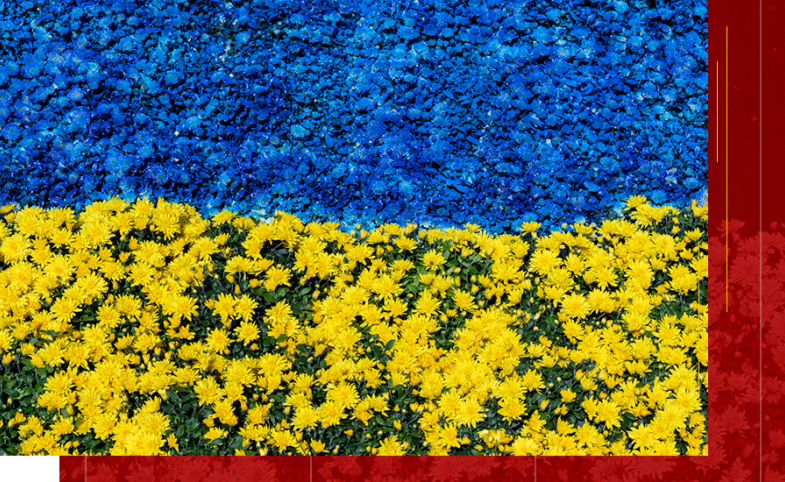“Public Diplomacy in the News” is a CPD Blog series by Andrew Dubbins that spotlights noteworthy stories on public diplomacy topics such as cultural diplomacy, nation branding, exchange programs, international...
KEEP READINGThe CPD Blog is intended to stimulate dialog among scholars and practitioners from around the world in the public diplomacy sphere. The opinions represented here are the authors' own and do not necessarily reflect CPD's views. For blogger guidelines, click here.

Public Diplomacy in the News: Ukraine’s Olympic Spirit, Cultural Clashes at the Games, and Biden’s Indo-Pacific Diplomacy
“Public Diplomacy in the News” is a CPD Blog series by Andrew Dubbins that spotlights noteworthy stories on public diplomacy topics such as cultural diplomacy, nation branding, exchange programs, international events and conferences, digital diplomacy, and strategic global communications.
Ukraine's Olympic triumphs amid war and adversity. Despite unprecedented adversity, including the destruction of over 500 sports facilities and the deaths of more than 500 athletes and coaches, Ukrainian athletes continued to compete and win, embodying national resilience. Notable victories included Olha Kharlan securing Ukraine's first medal with a bronze in fencing, followed by gold medals in the women’s team saber event, women’s high jump, and men’s middleweight boxing. This smallest-ever Ukrainian Olympic team not only demonstrated athletic excellence but also served as a powerful testament to the nation's enduring spirit.
Alina Niamtsu / Kennan Institute & Wilson Center
Geopolitical tensions and cultural clashes surround Paris Olympics. The Paris Olympics have become a stage for geopolitical and cultural conflicts, according to columnist Nathalie Tocci of The Guardian, who points to controversies such as the participation of Russian athletes as neutral individuals and a gender identity dispute in women's boxing. Despite initial fears of security threats due to ongoing wars in Europe and the Middle East, the Games have been largely safe. However, cultural clashes have emerged, including backlash against the opening ceremony and disinformation campaigns surrounding athletes. These incidents illustrate how the Olympics are being influenced by broader global tensions, particularly the cultural and ideological battles fueled by Russia and its allies.
Biden's strategic Indo-Pacific diplomacy. President Biden's Indo-Pacific diplomacy has significantly enhanced U.S. power and security in a region vital to American interests, according to a Washington Post op-ed by Antony Blinken, Lloyd Austin and Jake Sullivan. They argue that Biden's administration transformed the diplomatic approach to the region by creating an interconnected network of partnerships, moving beyond the traditional "hub and spoke" model. Initiatives such as the formation of AUKUS, the elevation of the Quad, and fostering trilateral and multilateral cooperation among countries like Japan, South Korea, and the Philippines have strengthened economic and security ties. This strategy has resulted in historic investments in defense, joint economic initiatives, and a united front against regional threats, notably from North Korea and China. These efforts have fortified U.S. alliances, improved regional security, and projected American power more effectively across the Indo-Pacific, according to the authors.
Antony Blinken, Lloyd Austin and Jake Sullivan / The Washington Post,
“Panda diplomacy” delivers new arrivals to U.S. Zoos. The arrival of two young pandas, Yun Chuan and Xin Bao, at the San Diego Zoo marks the first such event in over two decades, exemplifying China's practice of "panda diplomacy." These pandas, native to China, represent a diplomatic gesture aimed at enhancing bilateral relations and promoting conservation efforts. Their introduction follows a period of strained U.S.-China relations, which saw the return of previously leased pandas. The San Diego Zoo and the National Zoo in Washington, D.C., are both preparing for the pandas' public debut.
William Brangham & Courtney Norris / PBS
Reforming U.S. Foreign Service for effective diplomacy. Revitalizing the U.S. Foreign Service is essential for effective diplomacy, according to a Newsweek op-ed by David H. Rundell—former chief of mission at the American Embassy in Saudi Arabia—and Ambassador Michael Gfoeller—former political advisor to the U.S. Central Command. Over the past few decades, they argue, the State Department has become bogged down by an overemphasis on internal processes, reducing its ability to function effectively. To regain its former influence, according to the authors, the Foreign Service must streamline its operations, focus on core American interests, adapt to a multipolar world, and shift to a realist approach centered on national security and sovereignty.
Visit CPD's Online Library
Explore CPD's vast online database featuring the latest books, articles, speeches and information on international organizations dedicated to public diplomacy.
POPULAR ARTICLES
-
January 29
-
January 20
-
January 28
-
January 2
-
January 8
Join the Conversation
Interested in contributing to the CPD Blog? We welcome your posts. Read our guidelines and find out how you can submit blogs and photo essays >.













